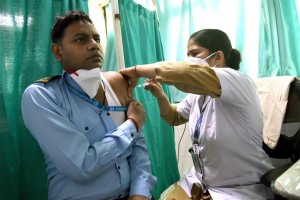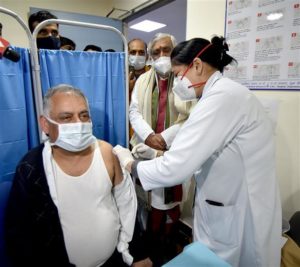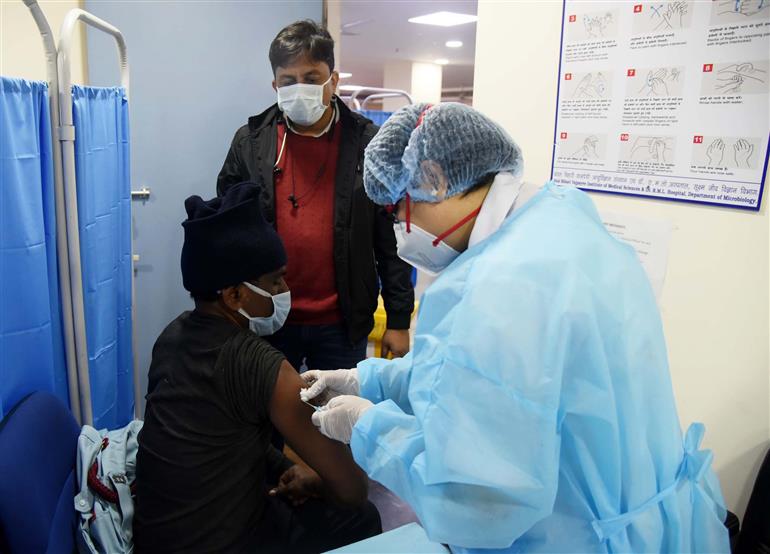
WHO, UNDP, UNICEF, WFP pitch in for immunisation drive’s success in India
New Delhi: In India’s COVID-19 vaccination drive — the world’s biggest wherein an estimated 10 million health workers are targeted to be vaccinated in the first round, and with plans to inoculate 300 million people by August — United Nations agencies are playing a crucial role.
While the UN World Health Organisation (WHO) has extended training and support to the health workers deployed for this gargantuan task, the UN agencies have further helped the Government with detailed preparation. WHO is also working with the Government and UN Development Programme (UNDP) on real-time reporting and problem-solving whenever issues arise at the vaccination sites.

Aside from directly supporting vaccine rollout, UN agencies continued their programmes to assist the most vulnerable communities impacted by COVID-19 and its socio-economic fallouts. The UN Children’s Fund (UNICEF) supported communication and advocacy efforts to ensure the dissemination of factual information to stakeholders and communities. It further helped train healthcare staff in infection control and prevention, and psychosocial support to children and caregivers.
Similarly, the UN World Food Programme (WFP) supported NGOs in order to identify and register some 19,000 vulnerable households and distributed food packets; while the UN Population Fund (UNFPA) conducted awareness raising programmes on sexual and reproductive health, and prevention of gender-based violence, on behalf of some 30 million vulnerable individuals.
WHO has also been involved in providing technical assistance to the Government for the development of operational guidelines and other training materials for state and district programme managers and vaccinators. It helped in establishing tracking and accountability frameworks, and participated in dry-run simulations and provided feedback on management of vaccines, registration of beneficiaries, as well as reporting on vaccination coverage and adverse events following immunisation.
Also read: WHO Committee highlights “significant gaps” in pandemic preparedness in countries across the world
“WHO field officers have facilitated the highest-level oversight through regular task force meetings at state and district levels, which are chaired by the Principal Secretaries (Health) at the state level, and District Magistrates at the district level,” Roderico H. Ofrin, WHO Representative in India, said in a report carried by UN News, yesterday. As it is, at the provincial level, WHO also supported implementation and monitoring of health policy, such as developing standard operating procedures, preparing technical briefs, and providing best practices from other parts of the India as well as other countries.

As the vaccination programmes are underway, continued vigilance against COVID-19 and preventing its spread remain as important as ever. WHO’s Dr. Ofrin urged continued vigilance over tracking cases, cluster investigation, isolation and clinical care, and quarantining to break the chain of transmission. Alongside, he also highlighted the “three W’s – wear a mask, wash your hands and watch your distance.”
“These efforts must continue to stop the spread of COVID-19. We as individuals and communities must work with the Government to save lives and the economy by protecting health and livelihoods,” Dr. Ofrin said.
– global bihari bureau




